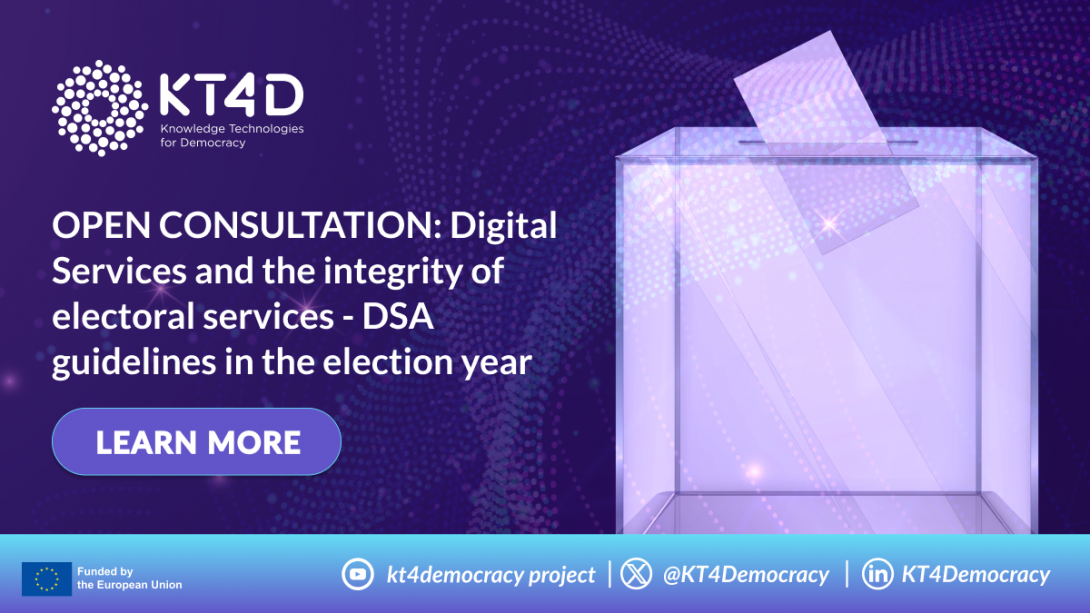OPEN CONSULTATION: Digital Services and the integrity of electoral services - DSA guidelines in the election year
20, February, 2024

The European Commission has initiated a public consultation to gather views on draft Digital Services Act (DSA) guidelines addressing the integrity of electoral processes.
2024 is considered by many the election year. Globally, more voters than ever will head to the polls, as about 49% of the people in the world are meant to democratically elect their representatives. The European Union will hold elections too, at all levels. Civic participation, fair elections and transparency are founding dimensions of democracy, and just as democracy itself, imply a reciprocal exchange between who elects and who is elected. This mutual relationship is very sensitive to emerging advanced knowledge technologies, namely AI and Big Data, which are revolutionising the way in which we all learn, craft our thoughts, and express them.
KT4D and the use of advanced knowledge technologies
KT4D is focussing on the responsible deployment of AI and Big Data technologies. Through its activities, the project is promoting inclusivity and ethical considerations in the use of these technologies across the society. Electoral processes represent one the highest levels and expressions of social interaction, but also the most serious challenge to the conscious and ethical use of these technologies. By fostering cooperation between different groups of actors, conducting research and developing tools and guidelines, KT4D aims to mitigate the potential risks associated with AI and Big Data in electoral processes.
DSA requirements: reasonable, proportionate and effective mitigation measures
This year, more than ever, it will be crucial to control and responsibly use these new technologies that could have the power to humper democratic processes. For this reason, the EU has promptly launched a public consultation on the guidelines, the first ever drafted under Article 35 of the Digital Services Act (DSA). Article 35 of the Digital Services Act (DSA) requires Very large online platforms (VLOPs) and Very large online search engines (VLOSEs) to put in place “reasonable, proportionate and effective mitigation measures, tailored to the specific systemic risks…”. In order for these platforms to be able to put in place these measures, the European Commission has drafted some guidelines. The objective of these guidelines is to provide VLPOs and Search Engines with optimal practices and potential measures to address systemic risks on their platforms that could jeopardise the integrity of democratic electoral processes.
The draft DSA guidelines offer examples of potential mitigation measures concerning election-related risks, as well as specific measures tied to Generative AI content. Additionally, they outline the planning of risk mitigation measures before or after electoral events, along with tailored guidance for the European Parliament elections.
The consultation will be open until 7 March 2024.